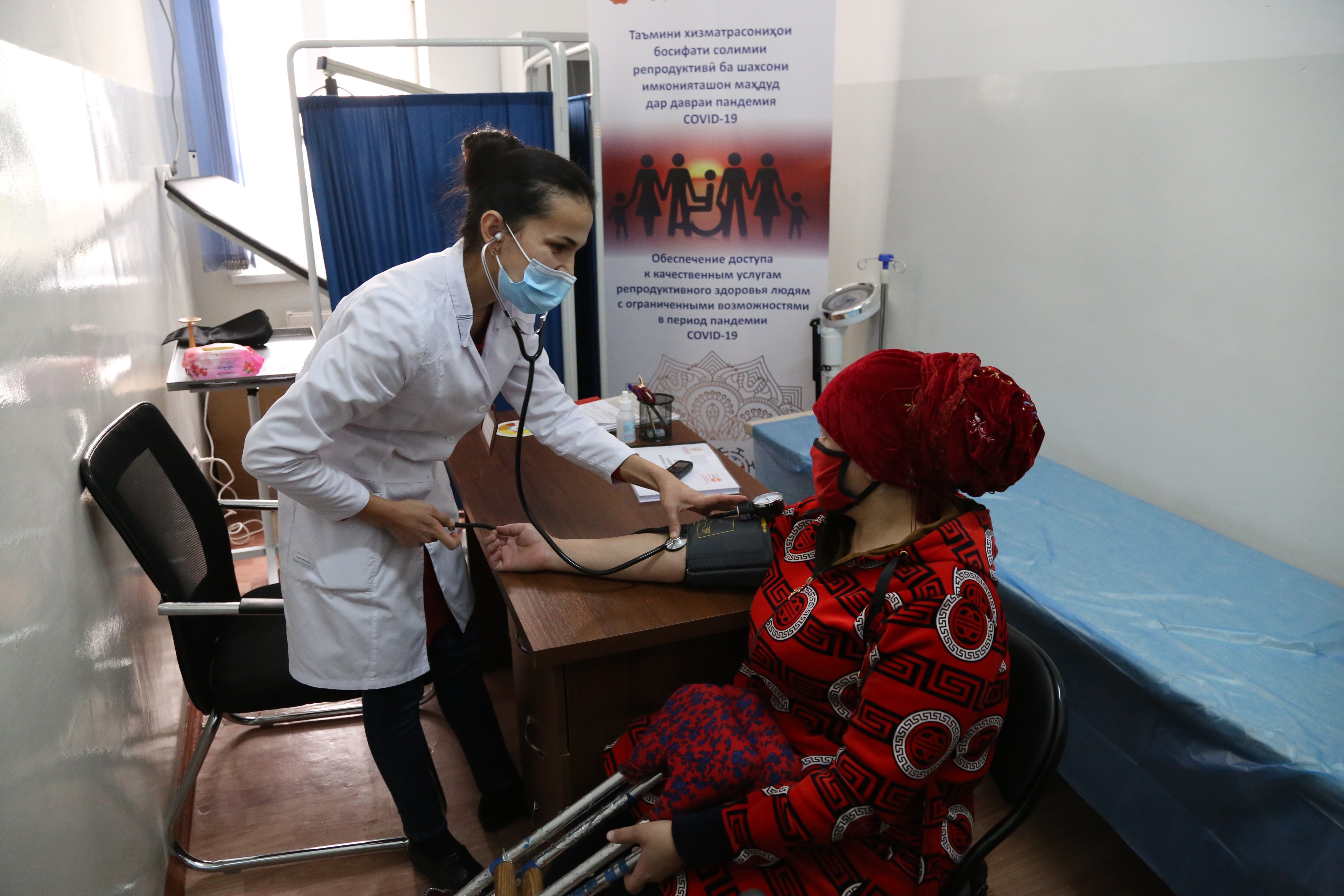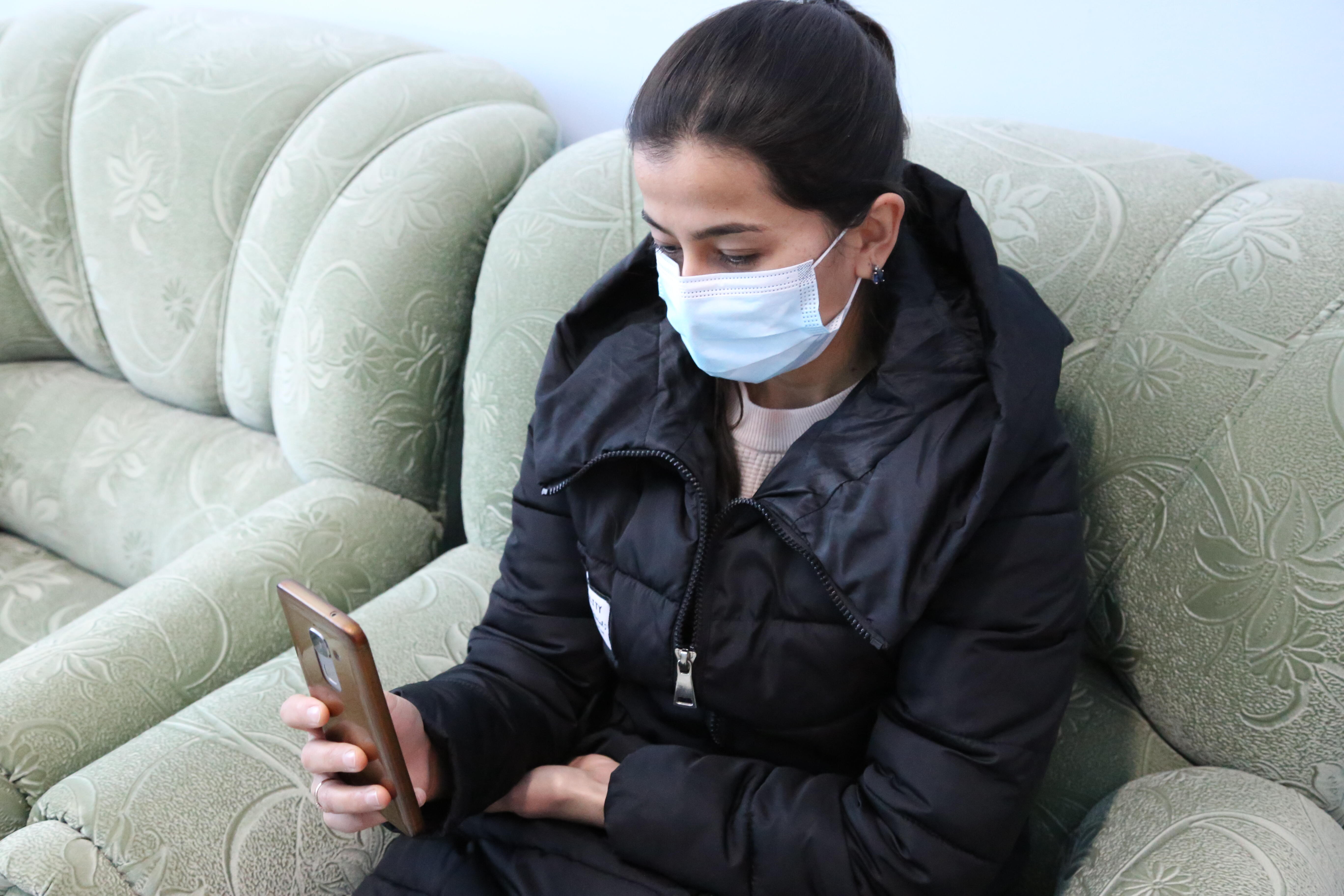DUSHANBE, Tajikistan — Like many people, young mother Madina Yuldosheva has been reluctant to visit her doctor during the COVID-19 pandemic. “I stopped going in for sexual and reproductive health consultations, but then an urgent need for a visit arose,” says Yuldosheva, who lives in the Jabbor Rasulov district of Sughd region.
So she was happy to learn from her gynaecologist about another option: receiving services remotely through a new telehealth programme.
Implemented by UNFPA Tajikistan with funding from the United Nations Multi-Partner Trust Fund Office, the programme offers essential sexual and reproductive health and family planning services and basic psychosocial support to women of reproductive age through messaging apps like IMO, Viber and WhatsApp. And this is just one of the ways that UNFPA is making sure no one in Tajikistan gets left behind during the pandemic when it comes to sexual and reproductive health.
Expanding access through telehealth
“The telehealth initiative has enabled women, especially those who are pregnant or have difficulty coming to the health centre, to have consultations with their doctors online, without the need to travel during the COVID-19 pandemic,” says Gulbahor Zaripova, head of the Reproductive Health Centre of Khatlon Region.
More than 2,200 women of reproductive age have already taken advantage of the telehealth programme, which will be extended through June 2021 with technical and financial support from UNFPA.
A total of 80 sexual and reproductive health service providers have been trained in the provision of alternative antenatal care, family planning and psychosocial support services following UNFPA technical guidance and WHO recommendations. This includes 22 service providers with dedicated mobile numbers and web-based applications developed for this purpose. An awareness-raising campaign including posters, leaflets and video PSAs has reached more than 2 million people in the country, including 200,000 pregnant women and 800,000 women who use modern contraceptives.

Another UNFPA-led programme focuses on ensuring that women with disabilities are able to receive the same sexual and reproductive health information and services as other women, including during the pandemic.
Roziya Boboeva, a young teacher in one of the Bokhtar city schools, says she always had difficulty finding a professional gynaecologist who would listen to her concerns and give her the advice she needed due to her disability. “Usually, they are always busy with other patients and it is hard to get their consultation,” she says.
But thanks to a new facility established at her local health centre that specializes in services for women with disabilities, Boboeva can get all of her sexual and reproductive health and psychosocial support needs met in one place. “This is exactly what I was looking for,” she says. “Most important is the attitude of the staff towards me; they understand me and listen respectfully to what I have to say.”
Safe and high-quality services
Five such facilities in different cities and districts of Tajikistan have been set up by UNFPA and its partner organization Gender and Development since July 2020, in close cooperation with the Ministry of Health and Social Protection of the Population of the Republic of Tajikistan and the National Association of People with Disabilities of Tajikistan. All of the medical rooms have been equipped with basic medical supplies, including personal protective equipment, in order to provide safe and high-quality services to women with disabilities at no charge.
The five medical rooms established in the capital Dushanbe, the cities of Kulob, Bokhtar and Khujand, and the district of Rudaki will have reached an estimated 12,500 women with disabilities by the end of the project cycle.
“Before, I didn’t know where to go when I needed a consultation on sexual and reproductive health issues, and these services were very expensive for me to afford,” says Bibinazokat Nazirova, who has been blind in one eye since she was a teenager. “I hope more and more of these facilities can be set up in our country, so we can get the services and consultations we need without having to worry about money.”



